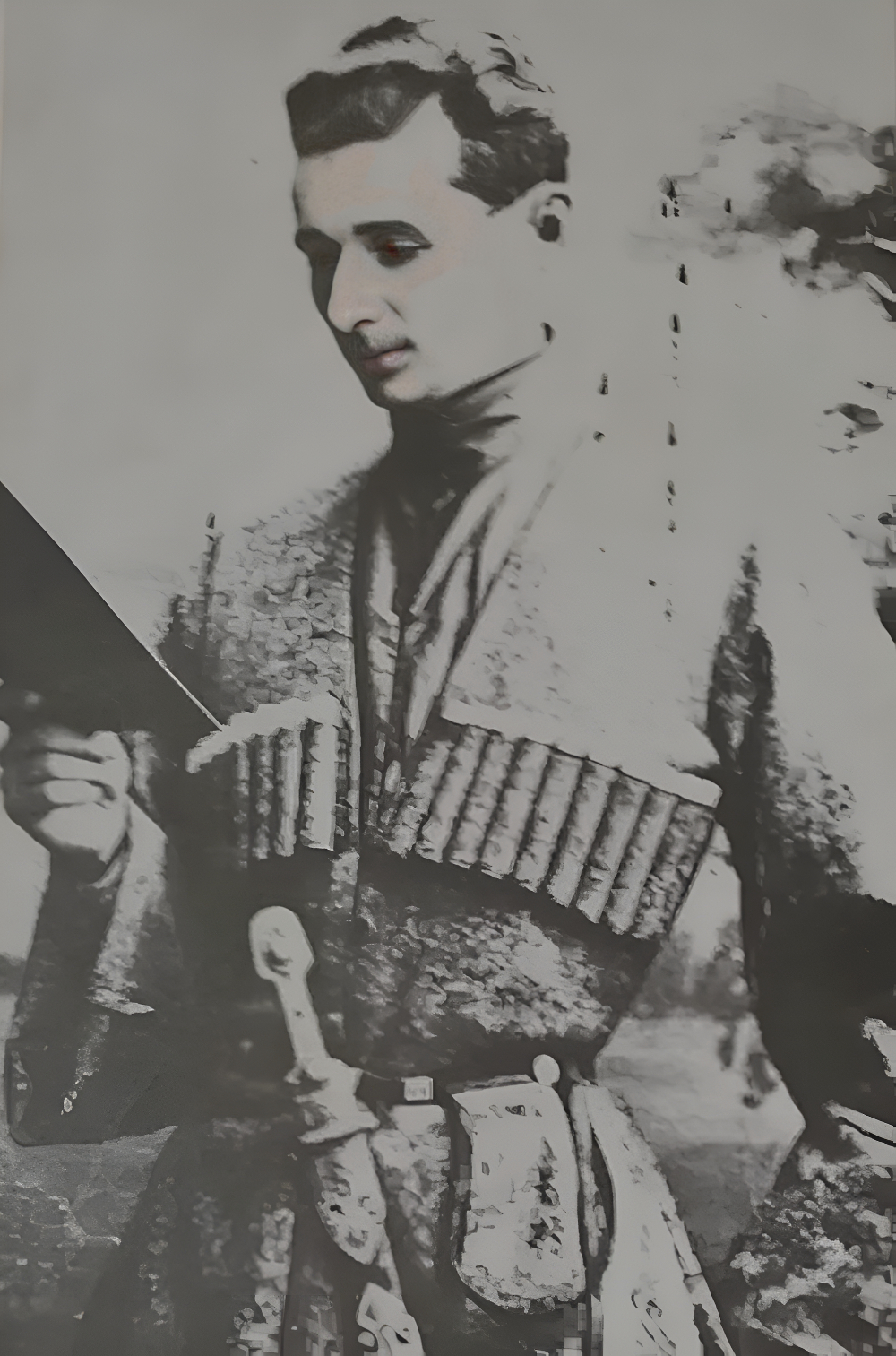The Song of the Kodor Abkhazians, by Konstantin Kovács (1930)

Konstantin Kovács' record of songs in the village of Tquarchal (from the book).
Konstantin Kovács’s The Songs of the Kodor Abkhazians is a seminal collection of ethnographic materials complete with musical notations, published in 1930 by the People's Commissariat for Education of Abkhazia and the Academy of the Abkhazian Language and Literature. This 72-page volume represents a significant exploration into the musical and cultural heritage of the Abkhazian people, focusing on the distinct traditions of the Kodor region. With a print run of 1,500 copies, this work serves as an essential document for understanding the intricate connections between music, folklore, and historical memory in Abkhazia.
Kovács, renowned for his pivotal work 101 Abkhazian Folk Songs (Sukhum, 1929), compiled this collection to document the cultural expressions of a people who had faced centuries of struggle, marked by conquest and resilience. His work captures the profound role that music plays in preserving collective identity, narrating historical events, and portraying social structures.
AbkhazWorld presents the first translations of The Songs of the Kodor Abkhazians, encompassing the Author’s Preface (pp. 3-5) and the initial section, Historical Songs (pp. 7-11), which covers topics such as the struggle for the independence of the Caucasus, the Russian-Turkish War (1877–78), feudalism, and revolutionary events. In time, the remaining chapters will also be translated and made available.
These translations were conducted with the aim of preserving the academic integrity and ethnographic detail of the original text, making them accessible to English-speaking researchers and enthusiasts of Abkhazian folklore.
Konstantin Kovács (1899 - 1939)

Konstantin Kovács holds the distinction of being the first composer of Abkhazia, pioneering the creation of compositions rooted in traditional Abkhazian folk music. He also compiled the earliest collections of Abkhazian folk songs during his many expeditions across the villages.
Kovács came to Abkhazia as a young man. At 26, the demobilised Red Army soldier, a native of Sevastopol with Hungarian heritage, was already an accomplished musician. He arrived seeking recovery after sustaining an injury. Upon his arrival, he developed a keen interest in Abkhazian folk music.
Kovács formed close ties with key figures of Abkhazian culture, especially Kondrat Dzhidzaria, who introduced him to Nestor Lakoba. He was invited to lead a wind orchestra, which performed in parks and on streets. At the Mountain School, he was offered a position to teach music. Kovács shared his aspiration to document folk songs with Lakoba."
Kovács’s deep affection for Abkhazia was evident. He understood from the beginning that the heritage of Abkhazian song was a unique part of global culture that must be preserved. Beyond establishing Abkhazian musical folklore, he laid the foundation for Abkhazia’s professional music school.
His collaboration with Nestor Lakoba proved fruitful. Lakoba was determined that Abkhazian children learn Western European classical music and master European instruments. Despite a lack of resources and trained personnel, Lakoba drove progress across all areas with a firm belief in its necessity.
Kovács designed the music school’s curricula and framework and succeeded in attracting the attention of Moscow’s musicians. Graduates from the Moscow and St. Petersburg conservatories, including theorists, choral directors, vocalists, pianists, and violinists, made their way to Abkhazia. In the autumn of 1930, Sukhum’s music college opened under Kovács’s leadership.
Several faculties were established: vocal, piano, and conducting (formerly known as instructional). Kovács also set up an ethnographic section, recognising the critical need to preserve national traditions. Folk choirs and an orchestra of traditional instruments were also part of this section, which continued the task of recording folk songs.
The college soon became the city’s musical centre. Its symphony and chamber orchestras, comprised of teachers, top students, and alumni, played in all city events and even performed in showcases in Moscow.
Under Kovács’s initiative, a boarding school for talented children was created at the college.
Kovács’ departure from Abkhazia in 1937 was not by choice. A denunciation had been filed against him, prompting a warning. By then, Nestor Lakoba had already been poisoned by Lavrenti Beria, head of the NKVD, the infamous Soviet security organisation. Had Kovács not left, he would have faced repression like his close friend Kondrat Dzhidzaria.
Kovács served as the first conductor of the Abkhazian symphony orchestra he established and arranged folk songs for both wind and symphony orchestras. In 1931, during the "Five-Day Abkhazian Music Week" in Moscow, the Abkhazian symphony orchestra, conducted by Kovács, performed a series of concerts. It was at this time that various practical measures were introduced to support the development of Abkhazian musical culture. Kovács was the first individual to receive the title of "Honoured Artist of Abkhazia" from the Abkhazian government. His contribution to the establishment and growth of professional Abkhazian music, to which he was dedicated throughout his brief yet remarkable life, is immeasurable.
THE SONGS OF THE KODOR ABKHAZIANS
A Collection of Ethnographic Materials with Musical Notations
- Historical Songs (The struggle for the independence of the Caucasus, the Russian-Turkish War (1877–78), feudalism, revolutionary events).
- Everyday Songs (labour, heroism and abrek practices, Abkhazians in the mountains, one song of an abstract nature, Abkhazian dances, communal songs).
- Songs associated with customs and rituals (blood feuds, weddings, funerals, illnesses and injuries).
- Songs of the Bzyb Abkhazians.
- Songs of the Batum Abkhazians (muhajirs).
Author’s Preface (pp. 3-5) and Historical Songs (pp. 7-11)
The full article in PDF can be downloaded by clicking here (279 KB.)
See also:
- Mysteries of the 1925 Musical-Ethnographic Expedition, by Mirra Khotilashvili-Inal-ipa
- Black Sea Sketches: Music, Place and People. By Jim Samson. Pp. 248. (Routledge, London and New York, 2021.)
- Explore Abkhazian music on AbkhazWorld's SoundCloud.